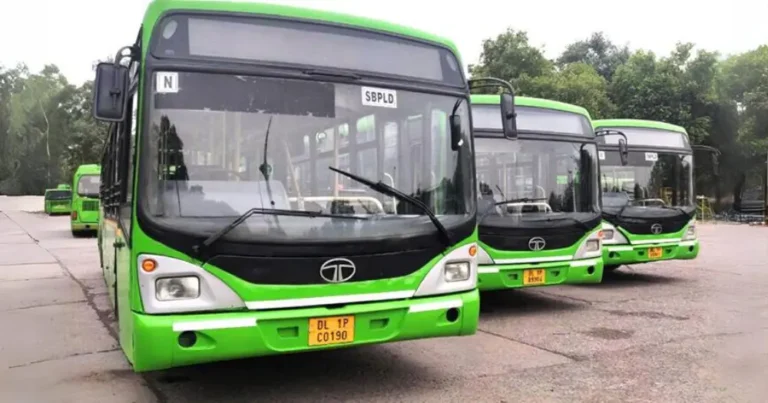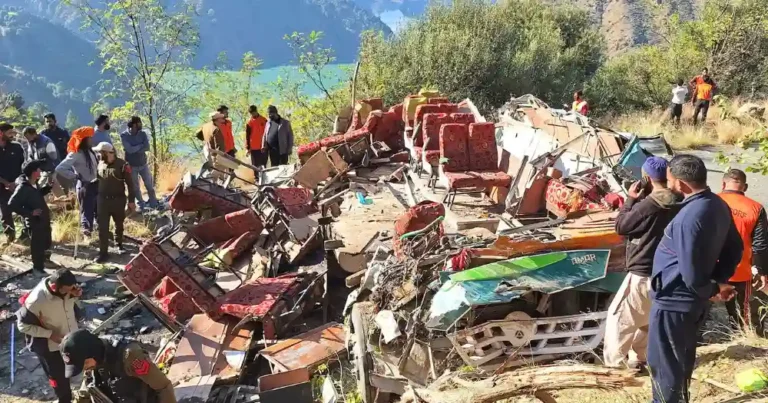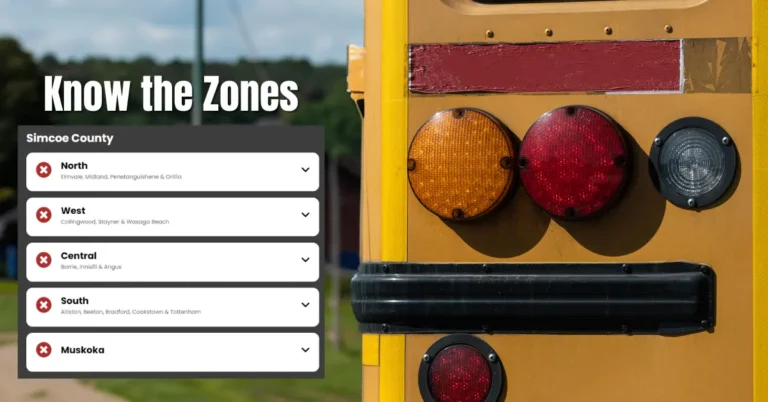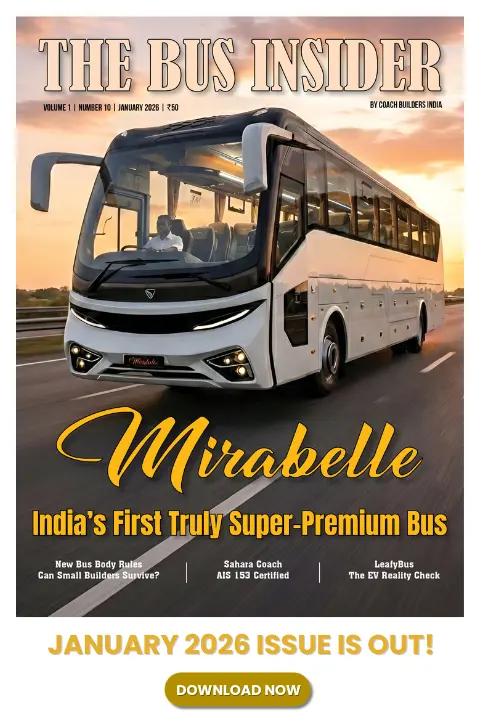Delhi Government to Transform DTC with Smart Card System, New Bus Terminals & Fleet Expansion
Delhi Government to transform DTC with Chief Minister Rekha Gupta announcing plans for a major overhaul of the capital’s public transport system.

The Delhi government is set to transform DTC and the capital’s wider public transport infrastructure through a multi-tiered strategy aimed at modernising the commuter experience. Chief Minister Rekha Gupta announced the introduction of a city-wide mobility smart card and new women-friendly fare initiatives.
The plans also include DTC fleet upgrades, and the redevelopment of major intercity bus terminals into world-class transport hubs.
This overhaul will affect DTC, Cluster buses, ISBT terminals, and key routes across Delhi-NCR. This will mark one of the most comprehensive transport reforms in recent years.
Electric Buses in Delhi: JBM Delivers 66 New Buses Under DEVi Project
Unified Mobility Smart Card Coming to DTC, Metro & More
A key highlight of Delhi government’s plans to transform DTC is the rollout of a unified smart card system, which will allow seamless travel across Delhi Metro, DTC buses, Cluster buses, and the upcoming Regional Rapid Transit System (RRTS).
The card will be a contactless smart card usable for fare payments, recharges, and trip records.
Delhi Government to Transform DTC With Pink Smart Cards
The Delhi Government is also expanding its free travel initiative for women and transgender passengers by upgrading the existing tokens to Pink Smart Cards.
- These Pink Cards will allow free travel on all DTC and Cluster buses, while also serving as valid IDs across integrated platforms.
- The cards will simplify audits and reduce operational leakages while improving commuter data analytics for policy-making.
This move strengthens Delhi’s positioning as one of the few Indian cities actively addressing gender-based transport equity with tech-backed implementation.
World-Class Redevelopment of Three Major ISBTs and Modernization of Bus Shelters
Out of the 4,627 Bus Queue Shelters (BQS) in Delhi, only 2,0201 of them are functional. The government is planning to modernize these BQS with real-time arrival displays, LED lighting, solar power support, and much more.
Also, three of Delhi’s largest bus terminals—Kashmere Gate, Anand Vihar, and Sarai Kale Khan—are set to be transformed into world-class Inter-State Bus Terminals (ISBTs).
Key upgrades include:
- Airport-style passenger experience with digital signages, modern lounges, food courts, and real-time display boards.
- Dedicated arrival and departure zones, segregated by bus category (intercity, intra-city, and EVs).
- Smart parking, e-charging bays, and rooftop solar infrastructure for sustainable operations.
These revamped terminals will serve as urban mobility hubs, connecting long-distance buses with Metro, feeder services, and last-mile options.
Fleet Overhaul and Route Expansion
The DTC bus fleet will be expanded and digitally modernised:
- Addition of new electric buses and retirement of aging diesel buses.
- Deployment of real-time tracking, driver performance monitoring, and automated depot management.
- Route restructuring planning in collaboration with IIT Delhi to address gaps in underserved zones and enhance first/last-mile connectivity with pilot project to be initiated in Yamuna Vihar.
The Delhi Transport Department is also planning new bus routes focused on high-demand areas and feeder circuits from ISBTs, Metro stations, and business hubs.
Tech-Driven System Upgrades
Delhi’s transport overhaul includes:
- Automated fare collection (AFC) systems across buses and terminals.
- Integration of AI and data analytics into traffic management, fleet utilisation, and passenger flow tracking.
- A new command-and-control centre to oversee all public transport operations centrally.
The Delhi government to transform DTC is not a fleet upgrade—it is a system-wide public transport reset aimed at creating a smart, gender-inclusive, and integrated mobility network.
From Pink Smart Cards to airport-style ISBTs and data-driven operations, this transformation will define how cities across India approach bus-based mobility in the coming decade.
Catch the latest Bus Industry updates, Exclusive Interviews, Bus News, and International Bus News on Coach Builders India. Download the latest issue of the The Bus Insider magazine for more insights.






